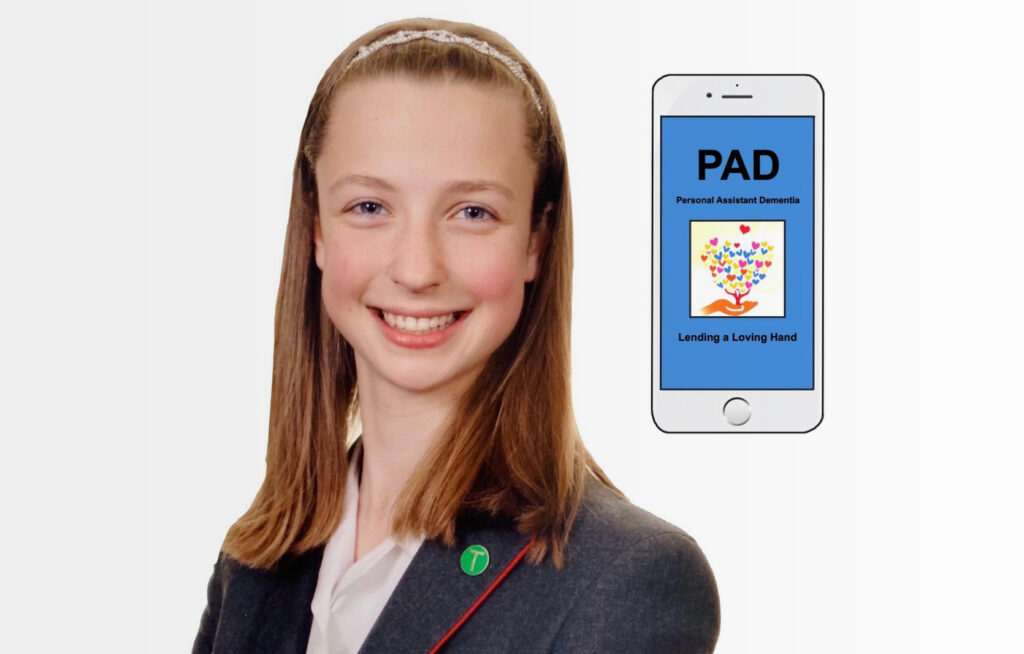
15-year-old develops app that could improve the lives of dementia sufferers
Lady Eleanor Holles School
STUDENTS
A 15-year-old student at Lady Eleanor Holles School in London has designed an app to help enhance the quality of life of patients in the early stages of dementia.
Catherine James developed the Personal Assistant for Dementia (PAD) after spending time with dementia sufferers and their families while on holiday in the summer of 2018. She set about creating a digital app that would help patients remain independent for longer, enhance their quality of life and enable them to avoid some of the costs of their care.
“I became interested in dementia, its causes and presentations. I learned that one of the many frustrations of people with early onset dementia was the loss of independence associated with their declining memory function.,” said Catherine.
PAD’s 20 adaptable icons include features to help orientate the person in time, assist with medication and healthy living, facilitate access to key contacts and emergency services, and be safe at home. A tracker helps relatives and carers track the patient’s movements, for example when making trips out of the home, and find missing objects. A ‘lost for words’ icon tackles one of the most common challenges experienced by sufferers by providing a reverse dictionary and picture prompts.
PAD has been shown to be successful at improving independence and confidence and enhancing the quality of life in a small sample of five sufferers in the early stages of the disease. Patients most used the app’s diary, contacts and medical features; found the relaxation icon – which provides mediation and mindfulness exercises – most enjoyable; and found the ‘memory box’ element most uplifting.
Reviewing Catherine’s research at the IRIS Virtual Conference, Michael Reiss, Professor of Science at the UCL Institute of Education [and IRIS trustee], was impressed with her research and app development.
“Dementia can have terrible consequences for the quality of people’s lives and for their families too. It is important, therefore, that we do all we can to enable those with early-stage dementia to retain their autonomy. This wonderful project entails the development and testing of a Personal Assistant for Dementia (PAD), a smartphone or iPad digital app. Evaluations of PAD by those with early-stage dementia have been very encouraging, suggesting that further development of this idea might make a real difference to the quality of people’s lives,” said Professor Reiss.
View Catherine’s academic poster
